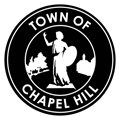ATTACHMENT 4
March 7, 2006
Special Status
Neighborhood Conservation Districts
Residents participating in the Neighborhood Conservation District process ask a common question regarding nonconformities as related to new neighborhood standards that may create conditions where a resident’s house does not meet the new regulations: Can I rebuild my house if it is destroyed?
Yes, you can rebuild your house. Nonconforming features have a special status. Your house can be rebuilt if it is damaged or destroyed. Existing structures that were lawfully established but do not conform to today’s regulations are “grandfathered”, meaning that if it is demolished or destroyed, it can be rebuilt in the same place, size and height as existed prior to the demolition or destruction. This pertains to structures in Neighborhood Conservation Districts (NCD) and those outside of NCD’s.
That being said, the degree or extent of a nonconformity cannot be increased. Additions to existing structures would have to conform to the current regulations. For example, a structure may be able to expand within the required property setbacks on one property line (e.g. the back of the house) but not another. The Land Use Management Ordinance does not distinguish between newly created nonconformities (in NCD’s) from existing nonconformities. The same rules apply.
Additionally, there are three types of nonconformities: lots, features, and uses, as follows:
Nonconforming Lot: A nonconforming lot is a lot that does not meet the minimum land area requirement of the Land Use Management Ordinance.
For almost all circumstances, the status of a lot as a nonconforming lot poses no negative impacts for a single family residential property owner. If a nonconforming lot is vacant, the owner can still build a single family house. If a single family house already exists on a nonconforming lot, the house can be used, expanded, and rebuilt if destroyed. The impact of nonconforming lot status occurs when multiple, adjacent lots are held in common ownership and one or more is nonconforming. In keeping with State Statutes, Chapel Hill’s Land Use Management Ordinance contains the following language: “Where a nonconforming lot abuts another lot of record (whether conforming or nonconforming) held in the same ownership at or subsequent to enactment of this Chapter, such lots shall be combined or recombined as necessary to form a conforming lot or lots and shall not thereafter be subdivided except in compliance with all of the requirements of this Chapter.”
Nonconforming Feature: This type of nonconformity is caused by a lot that does not meet dimensional standards such as required minimum setbacks from property lines, maximum heights, and maximum floor area. Nonconforming features for existing development may continue to exist and may be reconstructed if the structure were to be damaged or destroyed.
Nonconforming Use: This type of nonconformity is caused where a particular use is not permitted in the zoning district where it is located.
Please call the Chapel Hill Planning Department with questions at 919-968-2728. We regularly discuss nonconforming status with banks and mortgage companies and they understand the special status that allows structures to be rebuilt if damaged or destroyed.
